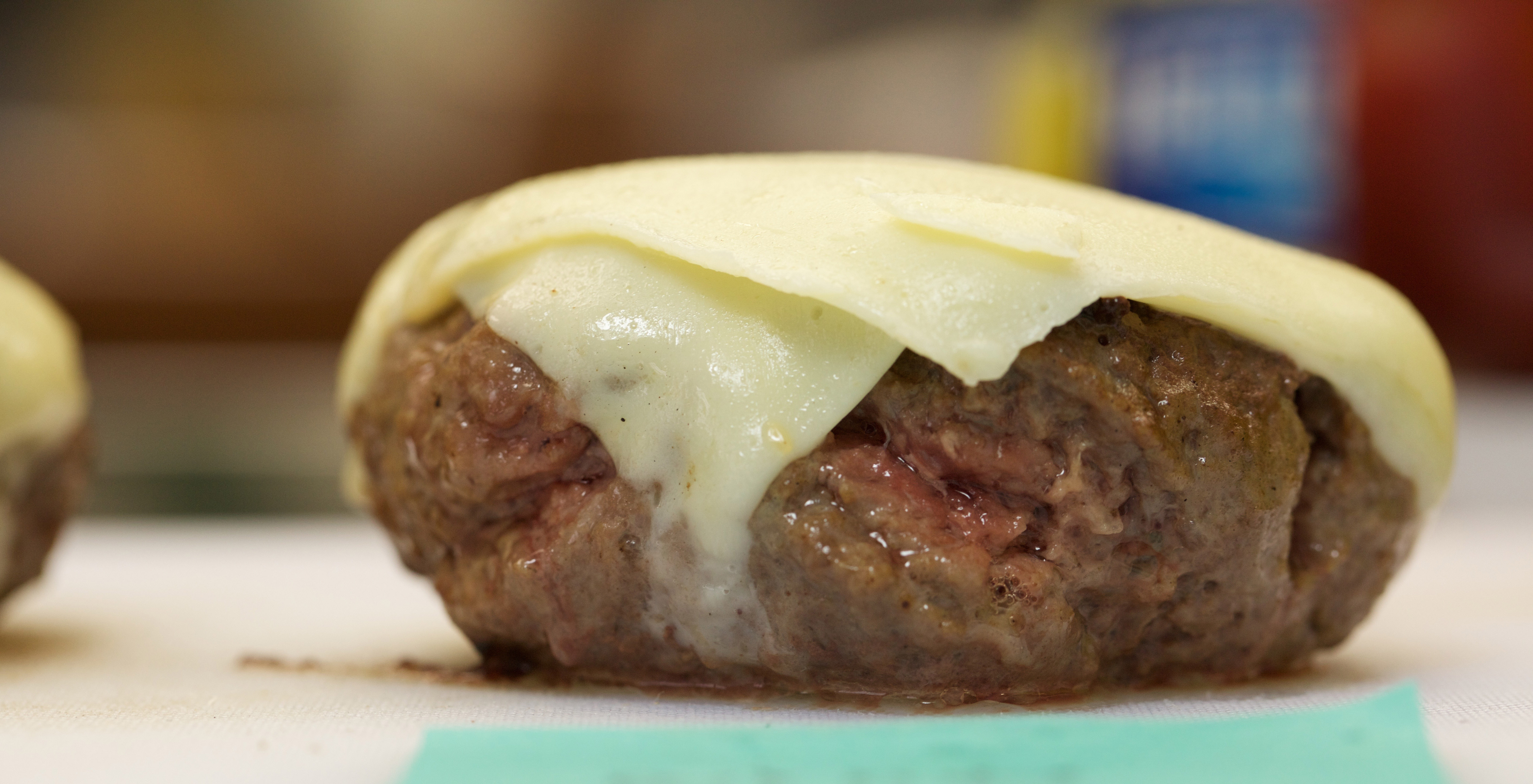Samin Nosrat—the bubblier-than-any-human-being-has-a-right-to-be cooking instructor who came up in the finest of Bay Area kitchens and claims the likes of Michael Pollan as her students—has been in our kitchen for all of five minutes and the word “kebaby” has already been said more times than I’ve heard in my life. (Kebaby, for the record, is a characteristic you don’t want in your burger. Kebaby means you’ve got that freaky-smooth, meatloaf-esque texture that’s perfect in kebabs, but makes even the best-intentioned burger look amateur.)
“I wrote this book because I’m a crazy person and it was the only book I could have written.”
Videos by VICE
Nosrat is here on tour for her new book, Salt Fat Acid Heat, which is the sort of giant encyclopedic cooking manual that comes out once in a lifetime—the sort of thing that explains all the stuff chefs all seem to automatically know in a way that’s kinder and gentler than having some angry-ass French dude scream it at you. She puts it much more modestly: “I wrote this book because I’m a crazy person and it was the only book I could have written.” The book took her four years to write, and each titular element gets an ultra-thorough illustrated rundown of what it is, why you need it, and how you apply it to things. Like salt, so you can not fuck up your hamburgers.

On to the hamburgers. We made her do a side-by-side test to see what happens when you: 1) salt the meat before forming the patties; 2) salt them an hour out; or 3) salt them immediately. Nosrat got her original salt education at Chez Panisse, where the gospel of Judy Rodgers (the late, great, original “salt bae,” of Zuni Cafe) reigned and things got salted way in advance. “Judy always salted her burgers a day or two in advance, and she said that made them more tender and flavorful. But for me, the one thing that I don’t think you should necessarily salt that far in advance is burgers.”

Standard method applies: screaming-hot cast-iron skillet; a little bit of oil; flip the burgers once and only once. Nosrat likes her burgers bleedingly rare, so that’s how these dudes are, but you can cook them to the pinkness you prefer. We’re not the boss of you.


But they weren’t. The burger salted immediately beforehand was ultra-loose and juicy; the one salted an hour out had a slightly more tensile spring on the outside, with a slightly kebaby interior (but the majority of that juiciness); the pre-salted one, kebab city. (I mean, it was still delicious. We still ate it. But it wasn’t the Platonic-ideal-of-burger the just-salted one was.)

And understand, the flavor differences here are negligible—they all got seasoned with basically the same amount of salt. It’s just when you add the salt that changes the burger texture: from zero to kebaby in 60 seconds. (Well, minutes. But still.)
More
From VICE
-

Lauren Levis, who died after taking iboga at the Soul Centro retreat in 2024. (Photo courtesy of the Levis family) -

VICE -

A gang of men hide in a clown car at the Ringling Brothers Barnum and Bailey Circus. April 1977, New York City. -

